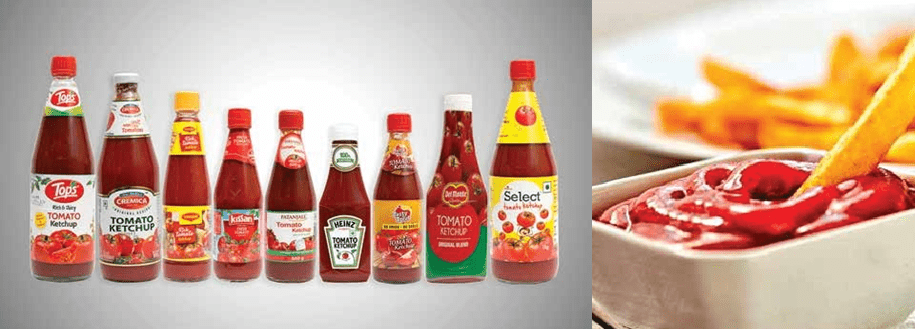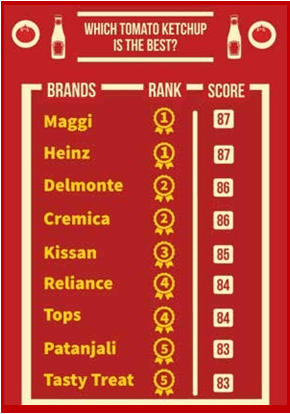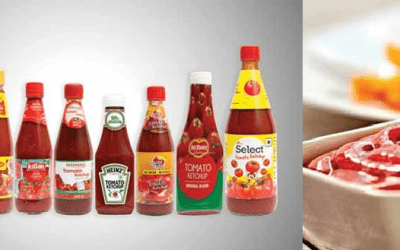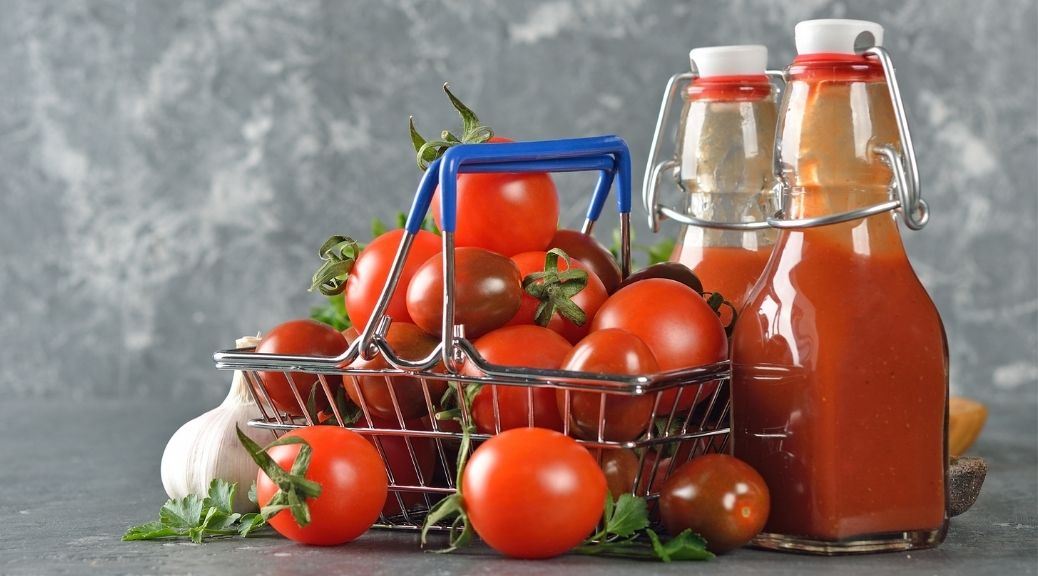The red, juicy-tomato ketchup makes our monsoon merrier. As during monsoon, we tend to consume more fried/fast foods including pakodas, toast,...

Tomato Ketchup-Which is the best buy for you?
Tomato Ketchup-Which is the best buy for you?
A Consumer Voice Report
Tested Brands
The team tested nine different popular tomato ketchup brands. One may see the table below to understand which brand scored high in this evaluation process.
| Rank | Total Score out of 100 (rounded off) | Brand | Quantity, gms |
MRP, Rs. |
Best Before, Months | Manufacturer/ marketer |
| 1 | 87 | Maggi | 500 | 97 | 12 | Nestle India Ltd. |
| 1 | 87 | Heinz | 450 | 99 | 12 | Heinz India (P) Ltd. |
| 2 | 86 | Delmonte | 500 | 95 | 9 | Field Fresh Foods Pvt. Ltd. |
| 2 | 86 | Cremica | 950 | 155 | 12 | Cremica Food Industries Ltd. |
| 3 | 85 | Kissan | 500 | 99 | 12 | Hindustan Unilever Ltd. |
| 4 | 84 | Reliance | 1000 | 150 | 12 | Reliance Retail Ltd. |
| 4 | 84 | Tops | 1000 | 140 | 18 | G.D. Foods MFG. (I) Pvt. Ltd. |
| 5 | 83 | Patanjali | 500 | 70 | 12 | Patanjali Ayurved Limited |
| 5 | 83 | Tasty Treat | 500 | 90 | 12 | Future Consumer Enterprises Ltd. |
CONSUMER VOICE RECOMMENDATION
Maggi and Heinz
Key findings
• Brands Maggi and Heinz were the top performers.
• Of the tested nine brands, Heinz is the only tomato ketchup brand that came out with no preservative.
• Patanjali had the highest level of lycopene (6.8 mg out of 100gm) followed by Delmonte (6.2 mg out of 100gm) and Maggi (5.5 mg out of 100gm). Lycopene is a powerful antioxidant, with many health benefits. The more the lycopene, the more is the ripened tomato content.
• Cremica got the highest points in sensory panel tests followed by Kissan and Heinz. Sensory panel tests were conducted in a test lab involving experienced lab scientists under the supervision of technical experts.
• All the brands were found well within the specified limits of heavy metal (arsenic and lead), microbiological tests (total plate and mould count along with yeast and spores).
• All the brands met the minimum requirements specified in the national standards, making them safe for consumption. However, moderate consumption is advisable since ketchups contain
preservatives, salt, and vinegar.
How We Test
The tomato ketchup samples were examined as per the test program developed by VOICE Society based on FSSAI regulations and relevant Indian standard IS: 3882. The comparative testing was conducted as per the standard test methods and requirements applicable to the product. The designated NABL accredited laboratory had conducted testing on masked and coded samples and accordingly the test report was issued to us.
Physico-chemical Scores of Tested Brands
| Brands Parameter |
Wt. % |
Maggi | Heinz | Delmonte | Cremica | Kissan | Reliance | Tops | Patanjali | Tasty Treat |
| Net weight | 3 | 3 | 3 | 3 | 3 | 3 | 3 | 3 | 3 | 3 |
| Total soluble solids | 8 | 6.70 | 6.42 | 7.02 | 6.70 | 6.75 | 7.35 | 6.92 | 7.09 | 6.90 |
| Specific gravity | 6 | 5.39 | 5.24 | 5.68 | 5.39 | 5.42 | 5.86 | 5.57 | 5.75 | 5.53 |
| Acidity as acetic acid | 6 | 5.28 | 5.64 | 5.28 | 6.00 | 5.28 | 5.82 | 5.28 | 5.28 | 5.28 |
| Preservative as Benzoic acid | 4 | 3.77 | 4.0 | 2.29 | 2.16 | 1.88 | 2.19 | 2.53 | 1.87 | 1.77 |
| Lycopene | 12 | 7.68 | 7.01 | 8.35 | 5.09 | 6.53 | 3.84 | 6.53 | 8.93 | 4.80 |
| Product Fill | 5 | 4.75 | 4.70 | 4.50 | 4.87 | 4.52 | 4.72 | 4.75 | 4.75 | 4.52 |
| Salt as NaCl | 4 | 3.28 | 2.08 | 2.56 | 3.04 | 3.04 | 2.56 | 2.80 | 2.56 | 3.04 |
| Heavy Metals | ||||||||||
| Arsenic | 2.5 | 2.5 | 2.5 | 2.0 | 2.5 | 2.0 | 2.5 | 1.5 | 2.5 | 2.5 |
| Lead | 2.5 | 2.5 | 2.5 | 2.5 | 2.5 | 2.5 | 2.5 | 2.5 | 2.5 | 2.5 |
| Organoleptic Tests | 36 | 31.33 | 32.64 | 32.31 | 33.90 | 32.70 | 32.62 | 31.54 | 28.06 | 32.18 |
TEST RESULTS
Lycopene Content | Total Soluble Solids | Specific Gravity | Acidity expressed as acetic acid | Product Fill | Preservatives as Benzoic Acid | Salt as NaCl | Organoleptic (Sensory) Tests | Toxic Metals | Microbiological Tests | Net weight | Packaging | Labeling

Infographic by Ashita Sharma
• Lycopene Content
The more the lycopene, the more is the ripened tomato content. Low levels of lycopene indicate the use of either less or unripe quantity of tomato pulp or poor quality of tomatoes. There is no specified requirement for lycopene in the BIS or Food Safety and Standards Regulations. Patanjali was found with the highest level of lycopene at 6.8 mg out of 100gm, followed by Delmonte at 6.2 mg out of 100gm and Maggi at 5.5 mg out of 100gm.
• Total Soluble Solids (TSS)
A total soluble solid is an expression for the combined content of all inorganic and organic substances contained in a liquid. The main ingredients of the tomato ketchup are water, tomato paste, sugar, salt and a minor quantity of vinegar, spices, preservative, etc. As per the national standards (BIS & FSS Regulations,), tomato ketchup should not have less than 25 % of total soluble solids. The tested brands were found well above the minimum requirement of 25%. Highest TSS was found in Reliance and lowest in Heinz.
• Specific Gravity
As per the BIS standard, the specific gravity should be at 1.111 minimum. The tested brands passed this level of requirement as well.
• Acidity expressed as acetic acid
Acidity content in tomato ketchup is related to the shelf life of the product. If acidity (acetic acid) is lower than the minimum limit, microbes may grow and will allow contamination of the product thereby reduce the shelf life of the product. All the brands met the standard requirement and passed the test. However, Cremica secured the highest in this parameter.
• Product Fill
The container should be well filled with the product and occupy not less than 90.0 percent of the net weight of the container when packed in a bottle. The tested brands had met this specific requirement as well. Cremica scored highest in this parameter followed by Maggi and Patanjali.
• Preservative as Benzoic Acid
Benzoic acid is a preservative. The presence of preservative generally increases the shelf life of the product and prevents the deterioration of nutritional values, taste, odour and microbial contamination. However, an excess amount of preservative is not desirable. As per the standards, the product should not contain more than 750 ppm (parts per million)of permissible preservatives. All the brands were found within the limit. This preservative was found absent in Heinz tomato ketchup as claimed by them.
• Salt as NaCl
There is no specified requirement in FSSAI and BIS regulations for salt in tomato ketchup. Salt is used in tomato ketchup for taste enhancement. In our test, we found salt was the highest in Heinz at 3.1 percent and it was the lowest in Maggi at 2.6 percent.
• Organoleptic (Sensory) Tests
Tomato ketchup is a fun food and taste enhancer consumed in limited quantity, therefore, this parameter is the most important and given the highest point of 36 percent. Sensory panel tests were conducted in a test lab involving experienced lab scientists under the guidance/supervision of technical experts. The tests were conducted as per the specifications laid down in the BIS including Colour, Consistency, Taste & Flavour and Absence of defects.
The nine brands achieved the following points given in the table below:
| S. No. | Brand | Score out of 36 |
| 1. | Cremica | 33.90 |
| 2 | Kissan | 32.70 |
| 3. | Heinz | 32.64 |
| 4 | Reliance | 32.62 |
| 5. | Delmonte | 32.31 |
| 6 | Tasty Treat | 32.18 |
| 7. | Tops | 31.54 |
| 8 | Maggi | 31.33 |
| 9. | Patanjali | 28.06 |
**Cremica topped the sensory tests followed by Kissan and Heinz.
• Toxic Metals
Toxics like arsenic and lead are a cumulative poison that enters either through the soil or during production. These accumulate in the body and cause irreversible damage to the brain, nerve cells, red blood cells, and the kidneys. The permissible limit for arsenic in tomato ketchup is a maximum of 1.1 ppm, and for lead, it is a maximum of 2.5 ppm. All the brands were found well within the limit of the specified standard. However, traces of arsenic were detected in Top, Delmonte, and Kissan, but well within the specified limit.
Lead was not detected in any brand up to the detection limit of DL-0.1mg per kg.
• Microbiological Tests (yeast, mould, and bacteria)
Microbiological contamination is a very important factor in determining the quality of food products. Microbiological tests were conducted for three major microbes present in food products as TPC (Total plate count), mould count and yeast and spores count. These microorganisms are responsible for many foods borne diseases. Due to improper or poor manufacturing practices microorganisms occur in the finished product. As per the national standards (FSS Regulation), the product should comply with the following requirements:
1. Total Plate Count: Not more than 10000/ml,
2. Yeast and Spores: Not more than 125 per 1/60 cmm,
3. Mould Count: Positive in not more than 40 % of the field examined.
All the brands passed this test.
• Net Weight
The weight of the tomato ketchup was measured and compared with the declared values on their packaging. Legal metrology rule has specified different tolerances for different sizes of packs. In our comparative test, all the brands passed this evaluation level as they were found carrying the declared net weight.
• Packaging
Packing is an important part of the product for maintaining its consistent quality. It should be user- friendly with the shape and size of the package. Seven out of nine brands were packed in a glass bottle, two in plastic bottles. All the brands met this standard requirement.
• Labeling
The following information should be marked on the product label:
Name of the material, name and address of the manufacturer, batch number, date or month of manufacture, net weight of the contents (in gms / kilograms), list of ingredients, FSSAI license no, green dot mark (vegetarian mark), MRP in Rs, best before month and year, instructions for storage and use, nutritional facts/information and customer care contact details. All the brands passed this level of the test.
Should you avoid ketchup?
- Gastric and allergic patients should consume tomato ketchup in a lesser quantity or avoid it. As tomato is full of acids, excessive consumption of tomato triggers various gastrointestinal Gastroesophageal Reflux Disease (GERD), commonly known as ‘acid reflux’, is a common intestinal disorder.
- For some people, excessive lycopene can give allergic reactions too. Some of the symptoms of lycopene allergy include itching, rashes, hives, chest constriction, swollen lips, burning sensation in eyes, and so on.
Source: Stylecraze.com
Tomato Ketchup-Which is the best buy for you?
Tomato Ketchup: What’s your secret (best) sauce for taste?
Most commonly used as a condiment to dishes that are usually served hot and may be fried or greasy, tomato ketchup is a stable grocery product of...



